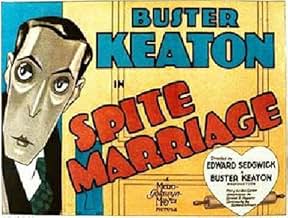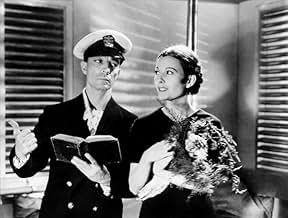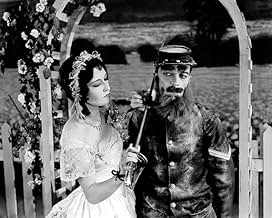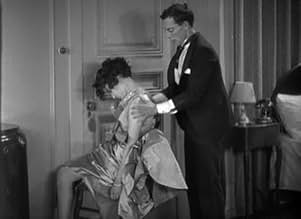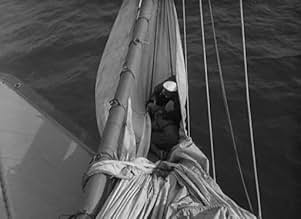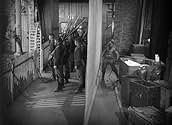The story isn't much, but Buster packs every scene with so many gags that you don't mind. It's easy to see why he was so successful, until MGM stuck him with stories that were totally unsuitable.
The original score is fantastic, here - it includes a great deal of popular music and makes commentary on the situations, but the meaning will be lost on most modern viewers (I collect records from that period, so I recognize most all of it); even so, it moves the action right along and gives us a rare chance to experience a silent film just as it was presented to contemporary audiences. No cheesy piano accompaniment, here! The sound effects are well done, and used sparingly.
The shipboard scenes could have been trimmed a bit; they seem to drag. Otherwise, time flies during this movie - you won't regret watching it! Just compare it with the average sound 'comedy' which Hollywood produced until 1932 or so, and you'll realize how they lost the art of making good films for a while. It's a crime that Keaton wasn't given the chance to produce his own talkies, because he might have changed the whole concept of what made a good SOUND comedy! It's a wonder that audiences didn't rebel against the boring, static, yawnful talk-fests that early sound comedies became; maybe the novelty of Talkies really WAS enough to bring them into the theaters.
I'd haven given this a 10, except for the draggy ship scenes - but the ending is satisfyingly Keatonesque!

